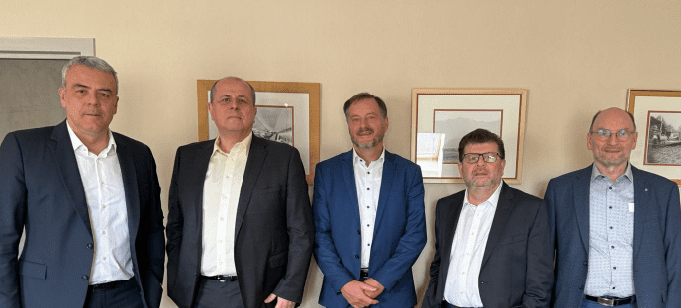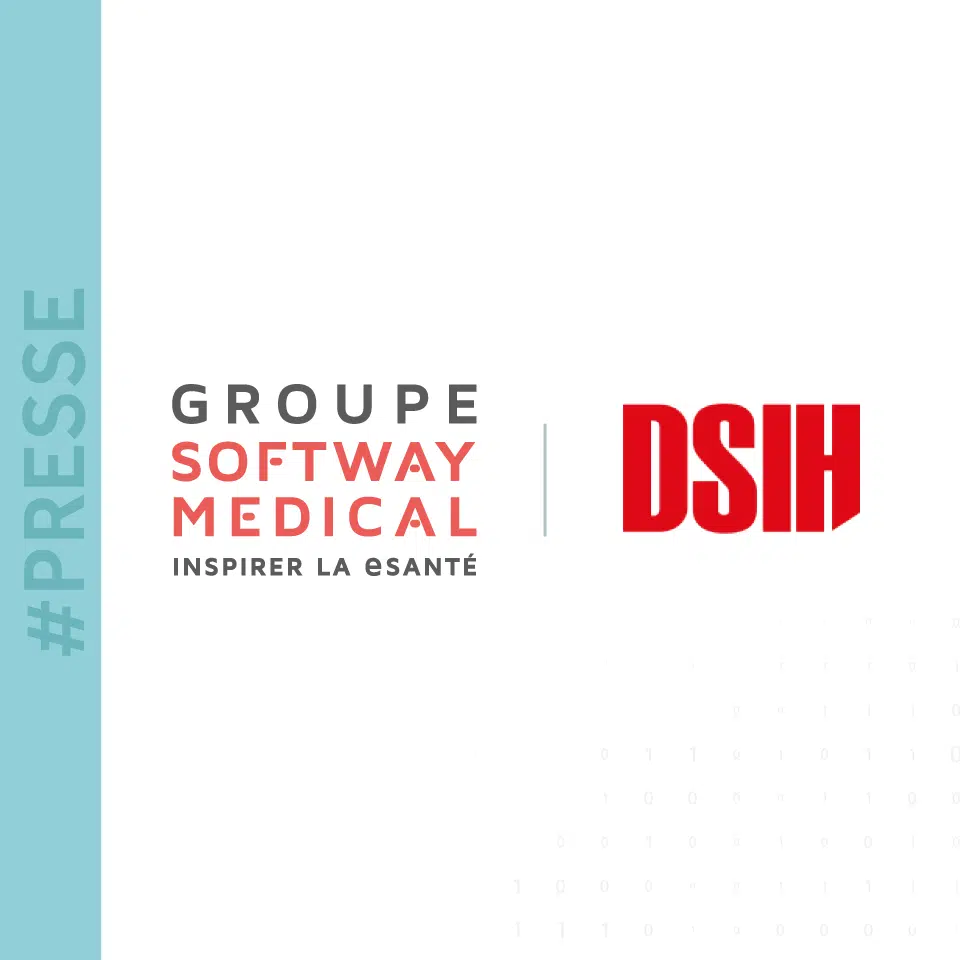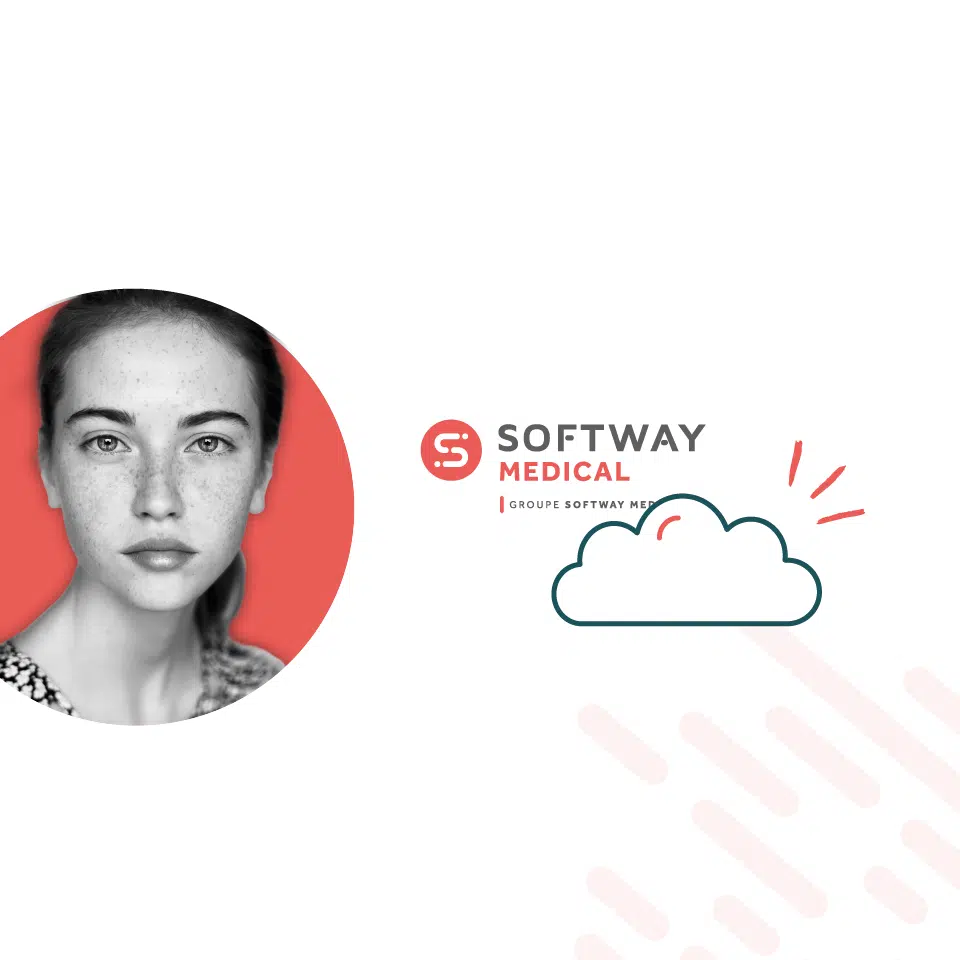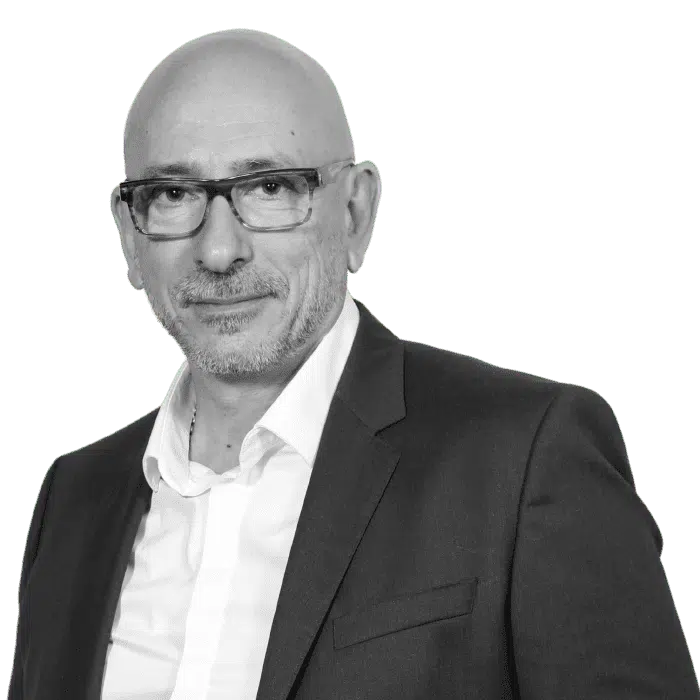In our first episode on France’s government-funded “POEI” back-to-work training scheme, Corentin Sanchez and Aurélie Rousseau shared their experience and the benefits they had gained from the scheme.
Indeed, Corentin, a recruitment manager at Softway Medical, explains: “POEI makes it possible to overcome recruitment difficulties for positions where qualified labour is difficult to find or to recruit in numbers. The advantage here is to be able to pool training and organise dedicated sessions.”
This time, we met with:
Loïc Sergeant, Support Manager – Imaging Division and David Bonin, Functional Support Manager – Healthcare Institutions Division, to talk to us about their experience with POEI.
“POEI MAKES BESPOKE TRAINING POSSIBLE. ACQUIRE PRACTICAL SKILLS. IT ALSO ALLOWS A NUMBER OF PEOPLE TO BE TRAINED AT THE SAME TIME ON IDENTICAL SKILLS SETS.”
In 2022, in partnership with Pôle Emploi (the French job-seekers service) and a training organisation, Softway Medical teams set up a POEI for support roles.
The “Help Desk 2022” cohort was thus launched with a tailor-made training program:
- IT,
- digital tools,
- customer relations (good practices and telephone scenarios)…
Loïc Sergeant, Support Manager – Imaging Division manages a team of over 25 people, dedicated to product support. He recruited two candidates for his team following this POEI.
David Bonin is Functional Support Manager – Healthcare Institutions Division. He manages a team of 25 people and recruited five candidates from the “Help Desk 2022” cohort.
SOFTWAY MEDICAL EMPLOYEES TESTIFY SHARE THEIR POEI STORIES
CAN YOU TELL US ABOUT THIS “HELP DESK 2022” COHORT?
Loïc Sergeant:
“Faced with people in mid-vocational retraining, I was initially a little hesitant about the scheme. I did have some doubts about these candidates who had no experience. But there were meetings planned to meet them and select the members of the “Help Desk 2022″ cohort. There is also a trial period at the end of the training, so the risks attached to POEI are ultimately no greater than in a more conventional recruitment process. The training programme has been adapted by Softway Medical. We have made significant and therefore beneficial modifications for us to the original modules. What also convinced me was to be able to meet the candidates before their training started.”
WHAT PROFILES WERE YOU EXPECTING?
Loïc Sergeant:
“One feature of recruiting a person for support is that however they are recruited, when they take up their position, they are not 100% functional.
Even with experience in IT or digital tools, the person must be trained in Softway Medical products. What matters therefore is the ability to learn.”
The oral exam at the end of the training allows us to measure its impact, to determine whether or not the technical skills have been acquired.”
David Bonin:
“POEI candidates must be aware of what they are getting into in terms of commitment. This device really highlights human qualities and know-how. The training is then really well structured to acquire the technical side.
Honestly, I didn’t expect the training to give them such a significant level of technical skills. We also have to find a compromise in the training offered because from my viewpoint, I mainly needed people with a level of functional support and therefore less technical.”
WAS THE OPTION TO CUSTOMISE THE TRAINING PROGRAMME THEREFORE ESSENTIAL?
Loïc Sergeant:
“In the Imaging division, support can be very technical, unlike other divisions where support is often mainly functional. My top objective was to provide the necessary technical level to respond to these calls.
This is what I look for when I recruit outside of the POEI scheme, candidates who have an IT technical foundation so we can direct subsequent training towards the product aspect.
For the “Help Desk 2022″ cohort, the programme was built according to grassroots criteria, depending on situations and products, I know what the expected technical/IT level is. I based the training program on these prerequisites.”
WHAT WOULD YOU SAY TO MANAGERS WHO WANT TO GET INVOLVED IN RECRUITMENT WITH A POEI?
Loïc Sergeant:
“It is essential for managers to be involved from the very beginning of the process. The time spent on interviews to select candidates is crucial, even if it takes away from other day-to-day work.”
David Bonin:
“The challenge is onboarding because, when they start their jobs, recruits are not operational until they have received training on the products. This is a challenge because it requires time from existing employees to train them, time they don’t have for anything else. In my team, it normally takes 4 to 5 weeks before they can start processing support tickets. We need to work on the arrival of these people and optimise their integration.”
SO THERE ARE MANY ADVANTAGES TO THE POEI SCHEME?
Loïc Sergeant:
“I would say that the fact of involving several stakeholders, with managers, recruitment, the training organisation, offers an alignment of the planets that allows us to target the right candidates. Those who will be receptive to the right training and then effective integration. The programme opens up the field of possibilities for us to a whole range of candidates that we would not have considered talking to outside of the programme. The POEI scheme allows us to extend recruitment to candidate profiles that we would not otherwise have considered interviewing. In a tight recruitment market, this is very positive. The training also creates a bond between the candidates. They can already work together by the time they start their jobs, which facilitates integration.”
David Bonin:
“Another advantage of the programme is to be able to receive the trainers’ feedback about candidates, their progress and development during the 400 hours of training. The arrival of these new talents is a breath of fresh air, although we do need to be better prepared for their arrival, because it is a challenge to take on so many new people at once.”





